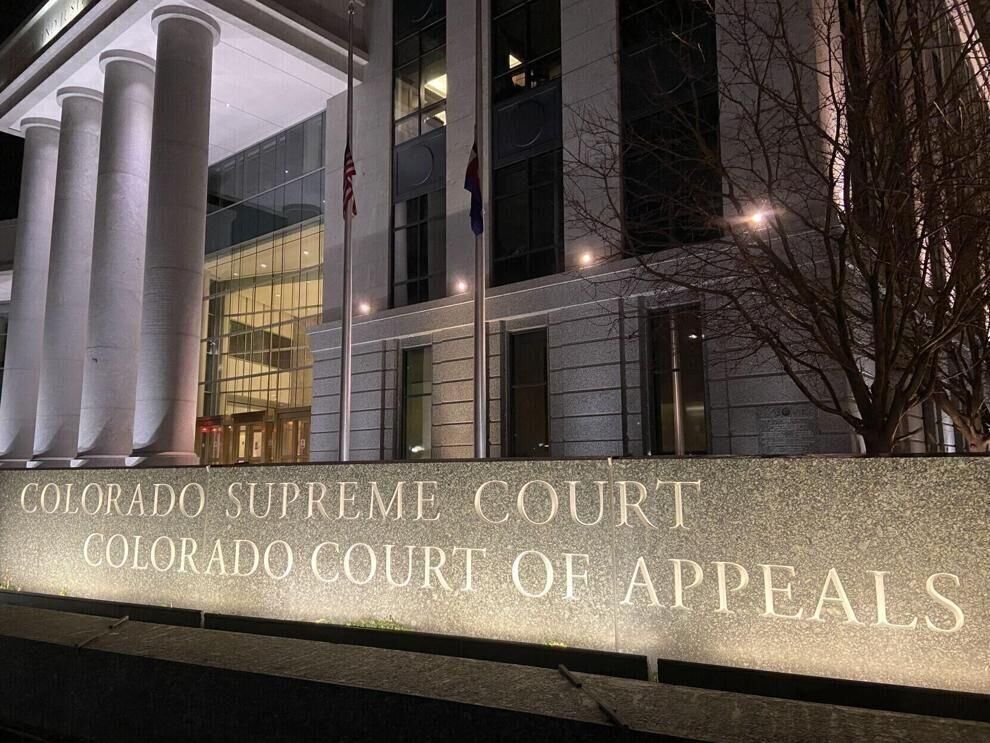Appeals court finds no problem with sleeping juror at Arapahoe County trial

Colorado’s second-highest court last week saw no problem with an Arapahoe County judge’s lack of further inquiry after the defendant’s lawyer claimed she saw a juror sleeping through the defense’s closing arguments.
Although Amber A. Threlkel’s lawyer alleged one juror was “sleeping throughout a significant portion of my closing argument” at Threlkel’s 2019 trial, District Court Judge Andrew Baum responded that he “didn’t see” the juror sleeping. Baum declined to let the alternate juror replace the sleeping juror, and Threlkel’s jury convicted her of two drug-related offenses.
On Wednesday, a three-judge panel for the Court of Appeals believed Baum had acted appropriately, given that the trial judge also asked the prosecutor and his law clerk if they had seen the juror sleeping. Neither of them had.
“We disagree with Threlkel that this constituted a failure on the trial court’s part to take any investigative action,” wrote Judge Janice B. Davidson in the Nov. 23 opinion. “Although the judge did not question the juror regarding the allegations, where the trial court is in a position to observe the jurors, further investigation is not required.”
Currently, the Colorado Supreme Court is weighing what guidance to provide trial judges for handling allegations of a sleeping juror. The justices will also better define the contours of criminal defendants’ right to a jury of 12, which the Colorado constitution guarantees in felony cases. A sleeping juror, as the Supreme Court has heard and as Threlkel argued in her appeal, could effectively deprive a defendant of a 12-person jury depending on the severity of the juror’s inattentiveness.
Prosecutors charged Threlkel with two counts related to the distribution of a controlled substance. Even though Threlkel’s husband was the person who actually sold methamphetamine to a confidential police informant, the government argued Threlkel was complicit in the transaction.
The Court of Appeals agreed with some of Threlkel’s arguments, namely that her two drug convictions arising from the same crime should actually merge together into one, in compliance with the constitutional prohibition against double jeopardy. The panel also acknowledged Baum failed to give Threlkel the opportunity to show she was unable to pay the $3,000 drug offender surcharge that was part of her sentence.
But the panel sided against Threlkel on her other claims, including that the sleeping juror was a structural error in her trial – one that altered the fundamental fairness of the criminal proceedings and requires that her convictions be reversed.
After closing arguments, Threlkel’s lawyer told Baum that one 76-year-old man, identified as Juror 4, slept through a “significant portion” of her closing argument.
“I have great concerns that he didn’t hear large portions of my argument,” the defense attorney said, asking for Baum to replace Juror 4 with the alternate juror.
The prosecutor responded that she “did not notice that” and would object to dismissing Juror 4.
Baum inquired of his law clerk, who reported that sometimes Juror 4 “looks like he has droopy eyes.” Baum said neither he nor his law clerk saw Juror 4 sleeping, and denied the defense’s request to replace the man.
On appeal, Threlkel argued Baum had an obligation to investigate the alleged juror misconduct and possibly take corrective action.
“The defense’s closing argument was of paramount importance, as it presented the defense’s version of the case, pointed out weaknesses in the prosecution’s theory, and gave defense counsel one last chance to ‘sharpen and clarify the issues,'” wrote Deputy State Public Defender Emily Hessler.
She added that Baum performed no investigation, did not ask Juror 4 what had happened, and ultimately permitted a juror to deliberate who may have missed “critical portions” of the trial.
A “juror who sleeps through trial is no juror at all. And, as a matter of due process, a defendant is entitled to have twelve competent jurors unanimously decide her case,” Hessler wrote.
The prosecution insisted Baum did investigate the alleged juror misconduct by asking others what they saw and by relying on his own observations.
“In the end, while the better practice may have been to question the juror,” conceded Olivia Probetts of the Colorado Attorney General’s Office, “declining to do so did not amount to an abuse of discretion under the circumstances.”
The appellate panel sided with the government, ruling that, even if it would have been preferable for Baum to question Juror 4 himself, there was no further investigation required under the circumstances because Baum relied on multiple eyewitnesses who denied seeing the sleeping juror.
Earlier this month, the Supreme Court held oral arguments in another case involving a sleeping juror, Forgette v. People. Compared with Threlkel’s appeal, the circumstances in Forgette were different in key respects. First, the defense lawyer in Forgette did not ask the trial judge to dismiss the sleeping juror. Second, the juror in Forgette slept through parts of witness testimony, not the closing arguments.
Finally, in contrast to Threlkel’s case, all of the parties in Forgette acknowledged the existence of a sleeping juror.
The defendant is asking the Supreme Court to adopt a rule for trial judges that reflects the specific facts of the case. The justices should establish that when “the trial court finds that a juror slept during the presentation of evidence but takes no investigative or corrective action, structural error occurs,” wrote public defender Jacob B. McMahon to the court.
Although McMahon contended the constitutional right to a 12-person jury requires those 12 people to be attentive, the justices were wary of triggering the reversal of a defendant’s convictions based on a juror who is simply bored.
“You seem to be fleshing that out to say a jury of 12 persons who are fully attentive 100% of the trial,” said Justice Monica M. Márquez. “What do we do if a juror is just zoned out?”
On the other hand, the members of the Supreme Court seemed more amenable to requiring trial judges to investigate a report of a sleeping juror, including by talking to the juror themselves.
“Why not call the juror aside and say, ‘Are you okay?'” wondered Justice Richard L. Gabriel.
“The only way to know is to have the judge actually inquire,” added Justice Carlos A. Samour Jr.
The lawyer for the prosecution in the Forgette case also endorsed the idea of some level of judicial investigation into alleged sleeping jurors.
“If this court wants to make a rule that a judge should always inquire into a juror who appears to be sleeping,” said Senior Assistant Attorney General William G. Kozeliski, “I don’t have any problem with that.”
The case is People v. Threlkel.














